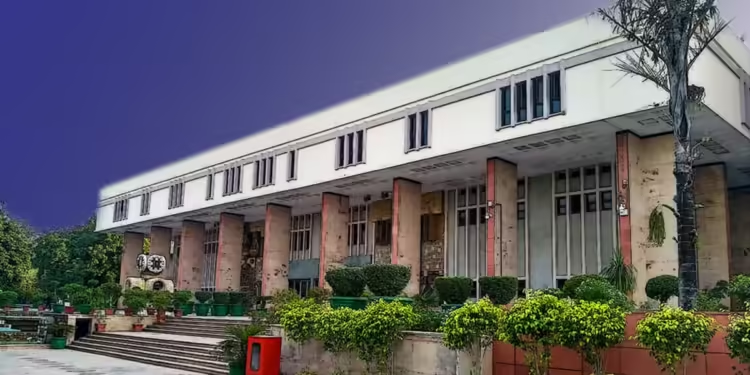The Delhi High Court recently emphasized that trial courts should only pronounce a decision to convict the accused in a criminal case when the conviction judgment is actually prepared and ready for pronouncement [Munna Singh and Anr. v. State of Delhi and Ors.].
Justice Navin Chawla made this observation while addressing a case where a trial court ordered the custody of two men before the judgment convicting them was ready to be pronounced.
The High Court has instructed all Principal District and Sessions Judges in Delhi to sensitize judicial officers to prevent such lapses in the future.
“The learned Principal District and Sessions Judges of all the Districts Courts in Delhi are requested to sensitize the presiding judicial officers to pronounce their judgments on conviction only when they are ready for pronouncement,” the Court ordered.
The judge also emphasized that if the accused is convicted and taken into custody after the judgment is pronounced, a free copy of the judgment must be provided to the accused immediately so they can pursue any legal remedies.
The Court was addressing a petition filed by two men (petitioners) who claimed that they were convicted and taken into custody by a trial court without any order being pronounced or supplied to either them or their lawyers.
The High Court found evidence indicating that on May 18, when the petitioners were convicted and taken into custody, the judgment convicting them was not ready with the trial court.
“If the judgment was ready, there was no reason for the learned Trial Court to put the case for supplying copy thereof to the petitioners on 22.05.2024,” the High Court reasoned.
The conviction order was only uploaded later, on May 21, on the court website.
The High Court further noted that the petitioners had attempted to obtain a copy of the May 18 judgment by submitting an application on May 20. However, the trial court did not accept the application and instead orally stated that the judgment would be available by May 23.
The Court found these lapses by the trial court to be violative of the procedure outlined in Section 353 of the Code of Criminal Procedure (CrPC) for the pronouncement of judgments.
The Court held that providing a copy of the judgment to the accused or their lawyer is crucial as it enables them to immediately challenge the judgment or order of conviction without awaiting the sentence order.
The Court added that in the present case, taking the accused into custody without providing them with a copy of the judgment reflected inappropriate conduct by the trial court.
“In the present case, not making available a copy of the judgment on conviction to the accused, and taking them into custody, in my view, therefore, was inappropriate on the part of the learned Trial Court and denial of not only a Statutory Right but also a Constitutional Right to the accused, as the judgment was not read as a whole in open court,” the May 22 High Court order stated.
However, the High Court agreed with the State’s submission that such a procedural lapse should not invalidate or set aside the conviction judgment entirely. Therefore, the Court disposed of the petitions without setting aside the conviction, stating that the petitioners may pursue other legal remedies to challenge their conviction.
Nevertheless, the Court ordered that a copy of this order be sent to the Inspecting Judges Committee of the trial court judge who handled the petitioners’ case.
Additionally, a copy of the order was directed to be sent to the Principal District and Sessions Judges of all Delhi district courts to sensitize judicial officers and prevent such errors in the future.

















